Twenty years ago, a group of Portland residents formed a nonprofit and bought an old building at the edge of Munjoy Hill, hoping to restore a critical and endangered piece of local African-American history.
At the time, the Abyssinian Meeting House – the third-oldest church building in the United States that was built by a black congregation – was an abandoned tenement. Its impressive 1828 timber-frame structure and soaring sanctuary had long ago been divided into several low-budget apartments.
City officials sold the tax-delinquent property at 75 Newbury St. to the Committee to Restore the Abyssinian in 1998 for $250, recognizing that there was a mountain of work to be done before the building would be safe to enter, let alone open for public tours.
In the two decades since, the committee of volunteers, led by the Cummings family, has raised and spent $1.2 million fixing some of the damage done after the congregation closed in 1917. The group also succeeded in getting the building named to the National Register of Historic Places and recognized as a northern hub of the Underground Railroad and the anti-slavery movement.
But the Abyssinian is still on the list of most endangered historic places tallied by the National Trust for Historic Preservation, and there’s still $1.5 million in work left to be done before the building can operate as a full-fledged living history center celebrating its prominent position in the history of the United States.
Now, in the building’s 190th year, the restoration committee is stepping up efforts to raise the remaining money and hopefully complete the project well ahead of the Abyssinian’s 200th anniversary.
“We’re sort of at the halfway point,” said Pamela Cummings, who heads the restoration committee. “When we started this, we were thinking about saving local history, but the Abyssinian is an important part of U.S. history, of world history.”
The drive to finish the Abyssinian comes amid mounting desire to fill in the bare spots of American history as recorded by white men – to uncover and highlight the long-neglected accomplishments of African-Americans, women and other minority groups.
“There’s a lot of black history that was left out of textbooks and there’s a real thirst for it now,” Cummings said, noting growing demand from school, community and tour groups who want to visit the Abyssinian.
In expanding its fundraising efforts, the restoration committee is reaching beyond government and foundation grants to rally support from Maine’s business community and beyond, and it has found an impassioned advocate in Portland City Manager Jon Jennings.
Jennings recently tapped his contingency fund to give the committee $35,000 needed to match grant funding. It brings the city’s total contributions to the Abyssinian to more than $400,000, largely through federally funded Community Development Block Grants, plus the near-gift of the property itself, in Portland’s increasingly popular and rapidly developing East End.
The Abyssinian became a pet project for Jennings after he met with committee members to discuss the project’s fundraising needs.
“It’s kind of criminal that we haven’t made restoring this historic building a priority for this city,” Jennings said. “The city (government) has helped out along the way, but there’s a lot more that needs to be done.”
Jennings said he wants to play a “significant role” in rallying support to complete the restoration, focusing especially on his connections in Greater Portland’s business community. He has already started reaching out to prominent businesses and he expects many will understand the ethical urgency and economic development benefits of supporting the Abyssinian.
“I believe the community will step up when they realize the role that the Abyssinian played in our early history,” Jennings said. “This is one of the greatest components of our history. We cannot let much more time to go by before we complete its restoration.”
TREASURE TROVE OF HISTORY
In 1826, six black men published a letter in the Eastern Argus newspaper calling for construction of an African-American church in Portland. They were tired of being relegated to the back rows and balconies of the city’s established churches.
The Abyssinian Religious Society built the meetinghouse in 1828 – following black churches in Boston and Nantucket – on land purchased for $250.
In the 1840s, the Abyssinian hired its first permanent pastor, Amos Freeman, who lived in the church basement. Because Portland schools were segregated at the time, the city paid Freeman to operate a school for 10 to 20 black children, also in the church basement, possibly making him the city’s first African-American employee.
With its strategic location near Portland’s bustling waterfront and overlooking the Grand Trunk Railroad yard, now long gone, the Abyssinian was a recognized landmark and a haven for former slaves traveling north to freedom, according to the restoration committee’s research.
The Abyssinian also was a center of Portland’s anti-slavery movement and hosted the founding meeting of the Portland Union Anti-Slavery Society, which had both black and white members.
Crowds filled the pews to hear speeches by well-known abolitionists such as William Lloyd Garrison and Frederick Douglass, as well as personal accounts of former slaves such as Lewis G. Clark and the Rev. D. Green, a visiting pastor at the Abyssinian.
The Abyssinian was one of few East End buildings to survive the Great Fire of 1866. William Wilberforce Ruby, son of founding member Reuben Ruby, is credited with protecting the meetinghouse by covering the roof with water-soaked blankets, though the fire never got close to the building.
The congregation experienced unimaginable tragedy in 1898. Nineteen members were among nearly 200 passengers and crew members who died when the steamship SS Portland sank on its way home from Boston during a terrible Thanksgiving weekend storm. It’s still considered the worst maritime disaster in New England history. The congregation never recovered from the loss and the church closed in 1917.
WHAT’S LEFT TO DO
Since the restoration committee acquired the Abyssinian, it has been slowly transformed in a painstaking, historically sensitive process dedicated to making the building look like it did in 1870.
The entire property has been studied by historians and archaeologists. Nearly all 20th century additions have been ripped out. The massive timber frame structure has been exposed and restored. The foundation and basement have been repaired and rebuilt. And a complete exterior restoration is nearing completion.
Restoration and construction work that still needs to be done includes the second-floor sanctuary, from floor to ceiling, double stairwells, bathrooms and ground-floor meeting and exhibit space.
The restoration committee is currently trying to raise $220,000 to complete the basement space so the building can safely host public programming and respond to increasing demand from groups that want to visit and learn about the Abyssinian.
“The Abyssinian as a classroom is kind of what we’re working toward,” Pamela Cummings said. “It’s about living history in the place that it happened.”
Cummings said the restoration committee is grateful for the fundraising help offered by Jennings.
“He gets it,” Cummings said. “He understands the importance of this building to the community and what it says about this community that we’re still struggling to complete its restoration.”
Julie Larry, director of advocacy at Greater Portland Landmarks, praised both Jennings’ interest and the restoration committee’s efforts.
“It’s really difficult for an all-volunteer organization to reach potential donors, so it’s really wonderful that (Jennings) wants to do that for them,” Larry said. “It’s an especially important property for national as well as local history and some of the things that remain to be done, like electrical and plumbing work, are really expensive.”
Especially pleased with Jennings’ support is Leonard Cummings Sr., who headed the restoration committee for nearly a decade before passing the responsibility to his daughter. He’s eager to impress local business owners with what’s been done so far and what’s left to be done to bring the Abyssinian to life.
“We’re going to ask the business community to help out,” the elder Cummings said. “We haven’t asked them before, but we’re going to ask them now.”
Kelley Bouchard can be contacted at 791-6328 or at:
kbouchard@pressherald.com
Twitter: KelleyBouchard
Copy the Story LinkSend questions/comments to the editors.

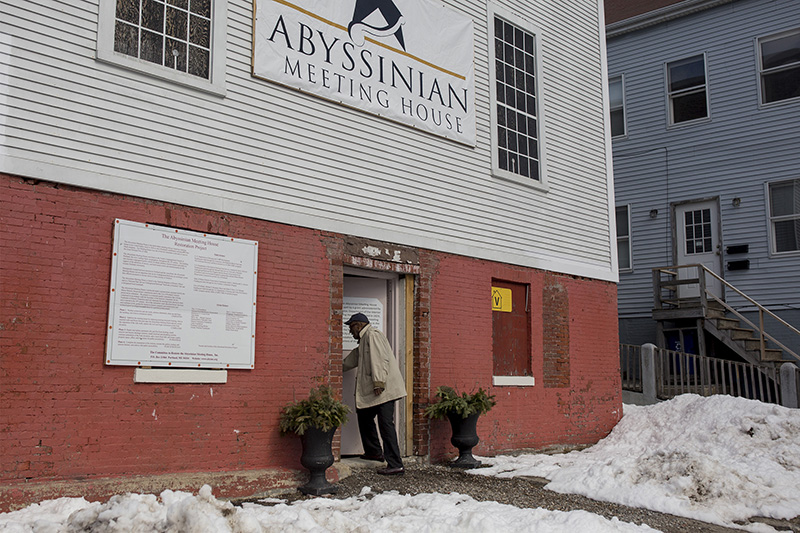
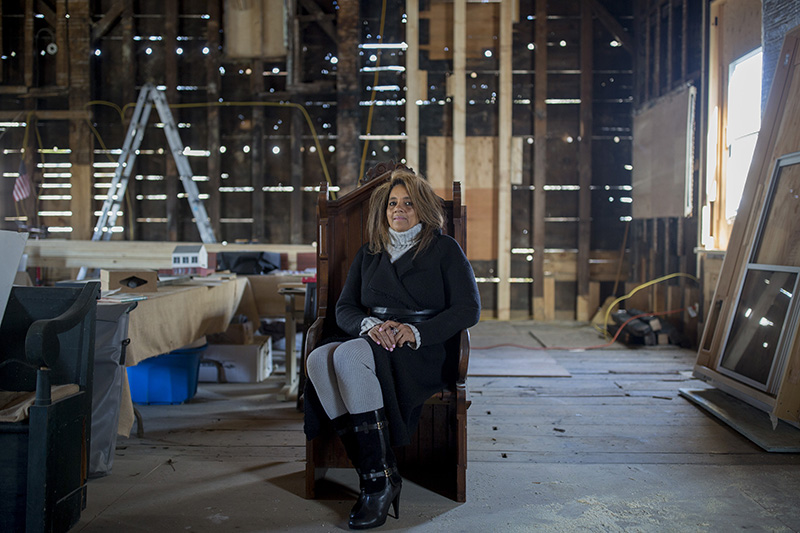
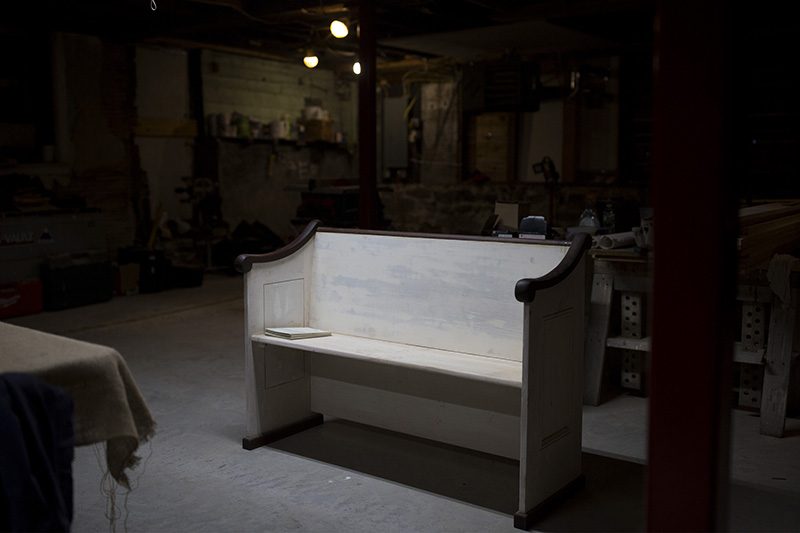
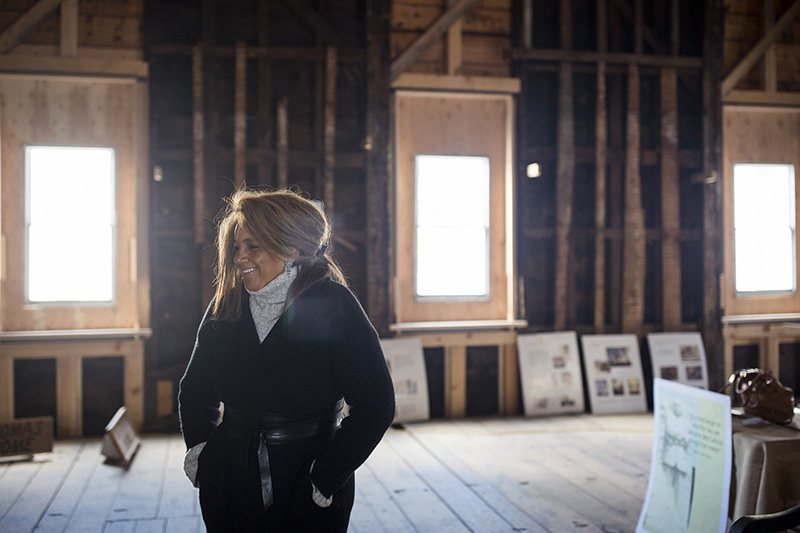
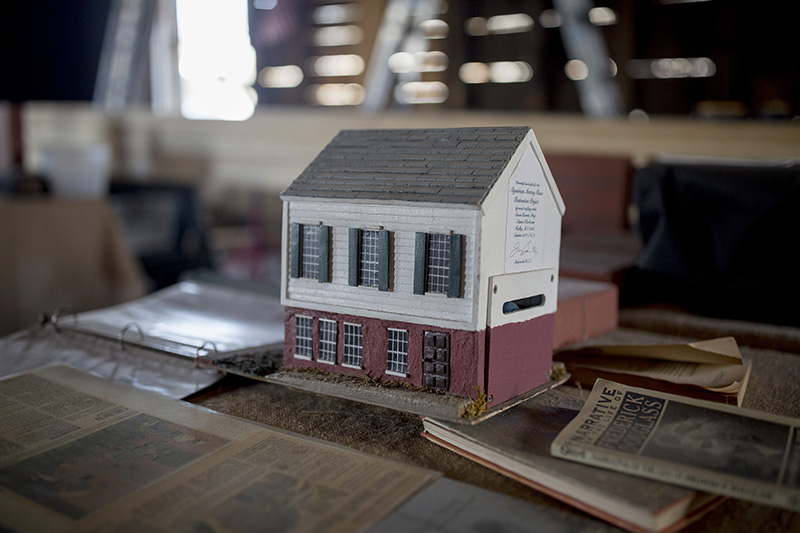
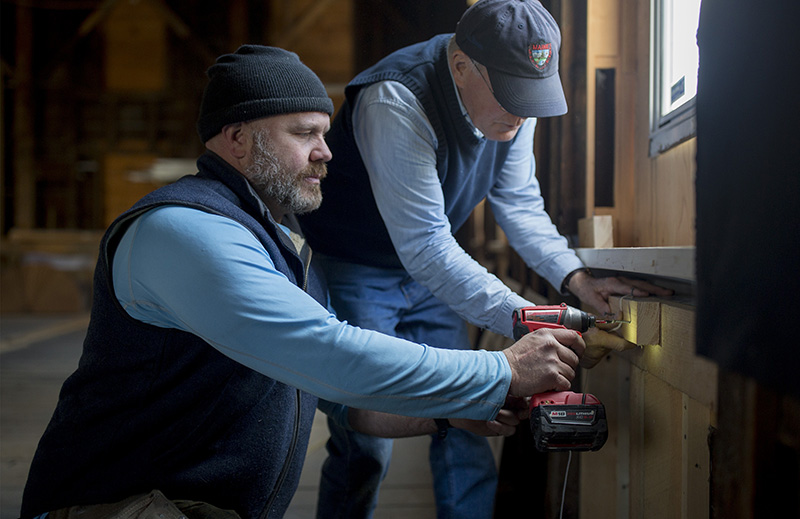

Success. Please wait for the page to reload. If the page does not reload within 5 seconds, please refresh the page.
Enter your email and password to access comments.
Hi, to comment on stories you must . This profile is in addition to your subscription and website login.
Already have a commenting profile? .
Invalid username/password.
Please check your email to confirm and complete your registration.
Only subscribers are eligible to post comments. Please subscribe or login first for digital access. Here’s why.
Use the form below to reset your password. When you've submitted your account email, we will send an email with a reset code.